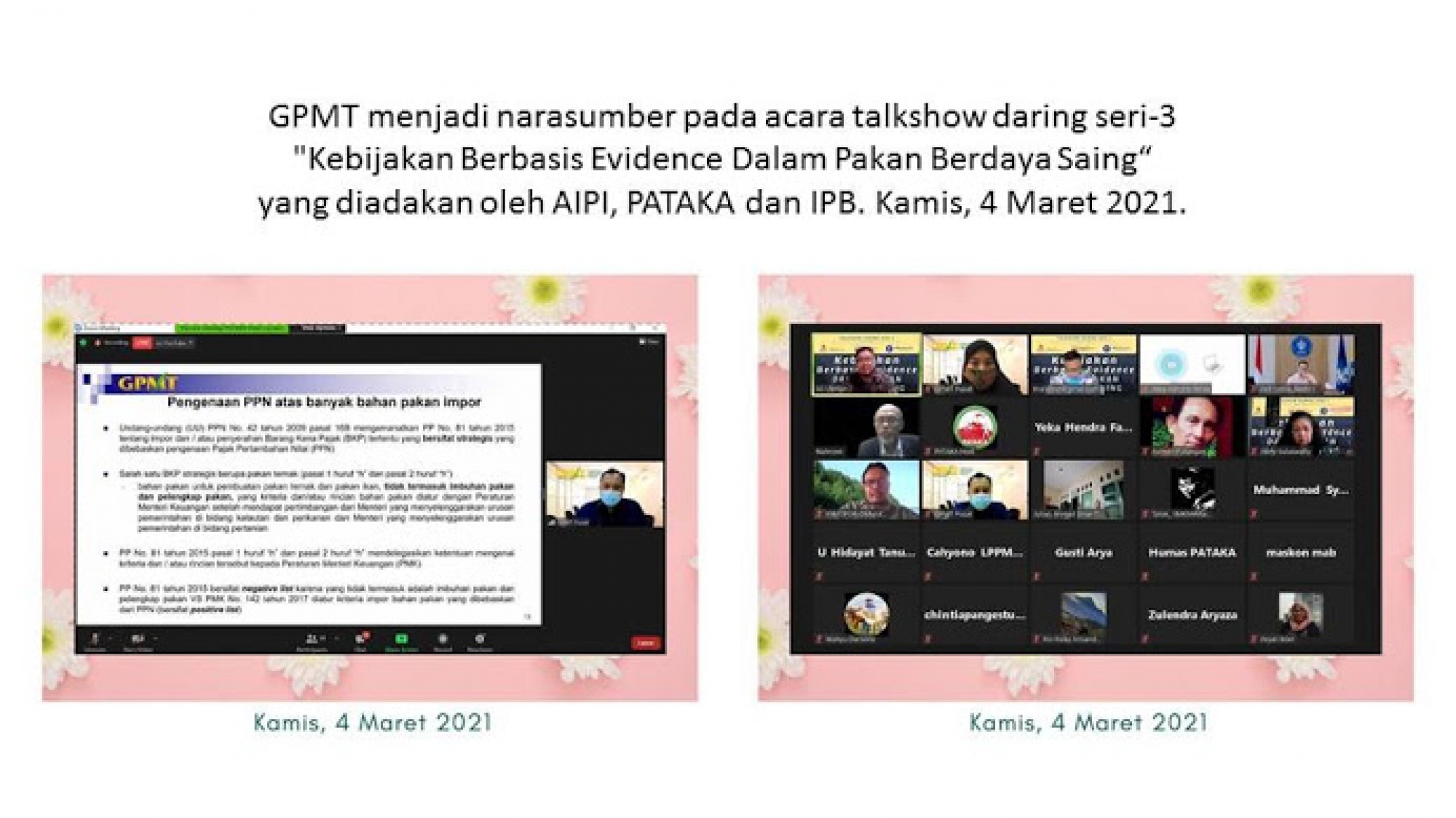- Event
- Video Activity
- The first Nutrition Campaign of DKI, West Java and South Sumatra Regional Commissariat at SDN Gobang 4, Rumpin - Bogor
- 15th GPMT Congress, August 21, 2024.
- GPMT Webinar: Opportunities and Challenges in the Animal Feed Industry, September 22, 2020
- GPMT 40th Anniversary
- GPMT Teams Up with Poultry Indonesia for COVID-19 Aid
- GPMT Cares about Covid 19 in Collaboration with T-Comm Trobos
- The 14th GPMT Congress in 2020
- GPMT Nutrition Campaign in East Java
- Cultivators' Hopes in the Dense Cirata Reservoir
- Facts about the Corn Harvest in Lampung
- Corn and Dryer Specs
- Chickens do not use growth hormones
- About Us
- Organizational Programs
- Government Regulations
- Media Conference
- Contact Us
- Event
- Video Activity
- The first Nutrition Campaign of DKI, West Java and South Sumatra Regional Commissariat at SDN Gobang 4, Rumpin - Bogor
- 15th GPMT Congress, August 21, 2024.
- GPMT Webinar: Opportunities and Challenges in the Animal Feed Industry, September 22, 2020
- GPMT 40th Anniversary
- GPMT Teams Up with Poultry Indonesia for COVID-19 Aid
- GPMT Cares about Covid 19 in Collaboration with T-Comm Trobos
- The 14th GPMT Congress in 2020
- GPMT Nutrition Campaign in East Java
- Cultivators' Hopes in the Dense Cirata Reservoir
- Facts about the Corn Harvest in Lampung
- Corn and Dryer Specs
- Chickens do not use growth hormones
- About Us Organizational Programs Government Regulations
- Media Conference
- Contact Us


